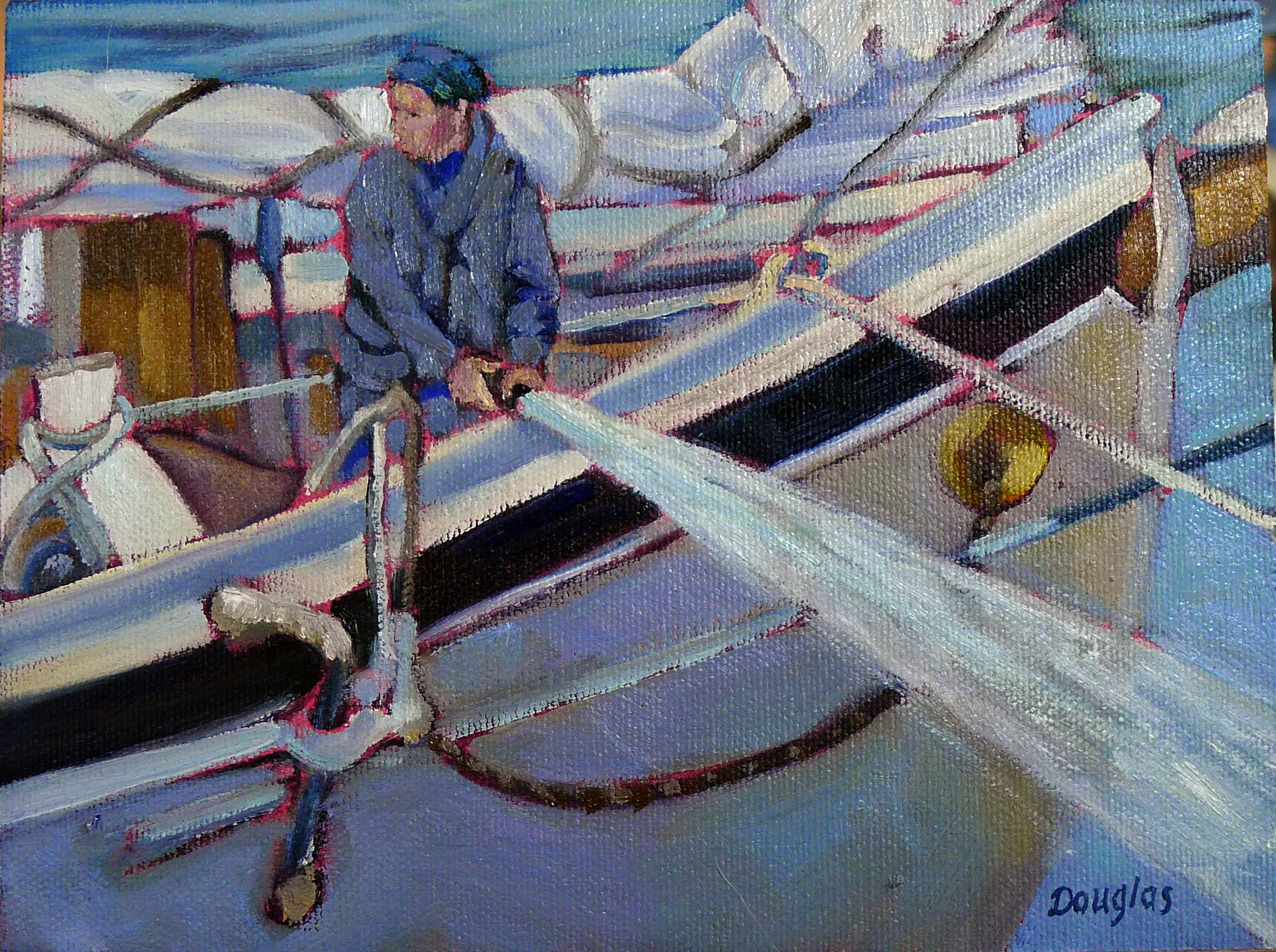
Being an artist means you make art, period. It doesn’t mean you’re brilliant at it, or that you make money doing it. It simply means you make art repeatedly, in an iterative process, building from one finished project to the next.
Anyone can be an artist
I have never heard anyone told, ever, that they’re not good at the Three Rs (meaning reading, ’ritin’, and ’rithmatic) so they should just go do something else. We take it for granted that there are bumps in the road in every pursuit, and some aspects of these disciplines will be harder than others. Moreover, we recognize that whether we use our writing skills to analyze Tolstoy or make out a shopping list, they’re useful for everyone. So how did the question of who can be an artist become so narrow?
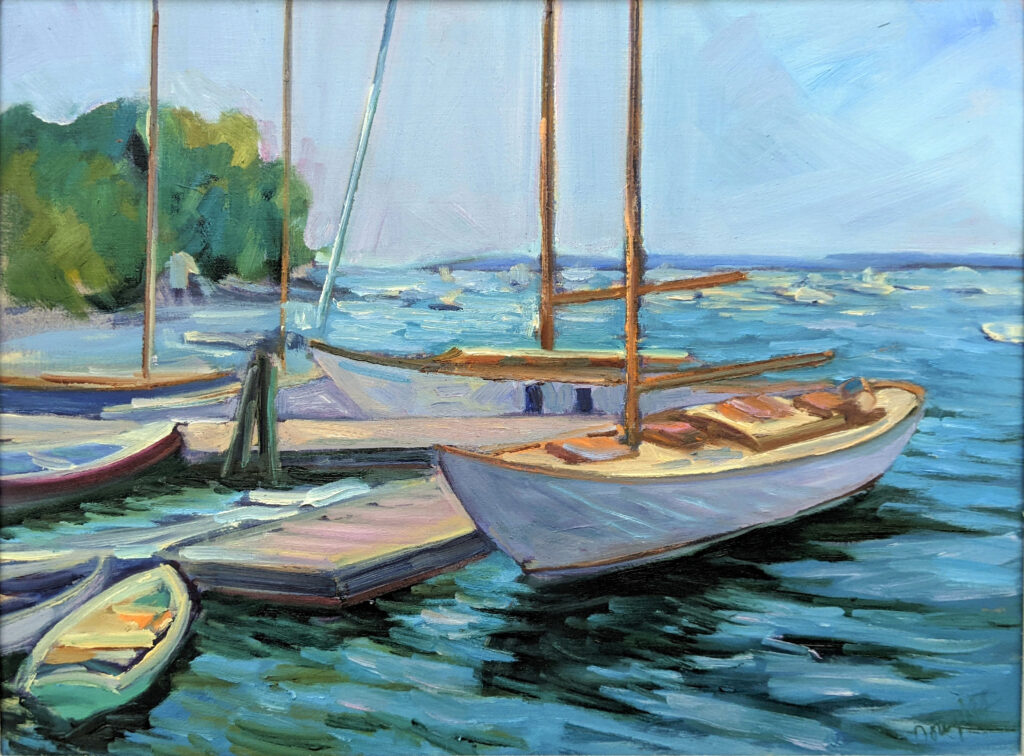
I’ve blamed the Cult of Genius for the spurious idea that the artist’s mind is unique. Until the 18th century, artists were craftsmen, and they trained in apprenticeships. After the Enlightenment, the arts were reclassified as an intellectual pursuit. None of my working artist friends are intellectuals in the real sense of that word. Yes, they’re smart, but they’re also pragmatic and hands-on.
Why are we all so specialized?
My daughter told me recently that my grandkids’ peers don’t just try one activity and then another. Sandlot baseball, as we knew it, is nonexistent. Instead, kids choose a discipline almost as soon as they’re up on their pins. They stick with that specialty through high school. The parents, my daughter tells me, are interested in sports scholarships.
Early specialization leaves no time for what making art is all about: experimentation and creativity. And since there aren’t art scholarships the way there are sports scholarships, nobody is pushing little Minnie to stick with her crayons.
We give lip service to the idea of developing creative kids who can “think outside the box.” (Not that I believe that’s what society really wants, but it’s what we say.) Art requires discipline, but it also encourages free-roaming thoughts.
What’s required to be an artist?
- The ability to think imaginatively, which requires leisure time for the mind to roam.
- The capacity to express ideas.
- Technical proficiency, built over time.
- Passion, because there are easier ways to spend your time.
- A unique worldview.
- Resilience: If you aren’t persistent in the face of failure, criticism and rejection, you will quit.
What I didn’t list
Note that I never mentioned talent, innate ability, or intelligence. The most successful artists are the hardest-working, full stop.
I have a young friend who’s been a journeyman photographer under the tutelage of his father for several years. I have one of his books, and it’s nice but not inspired. Suddenly, this year, he’s on fire. He may look like an instant success or a ‘great talent’ but all that rests on the thousands of photos he’s taken to find his artistic voice.
You don’t have to be an artist
Anyone can do it; that doesn’t mean everyone will. The steep learning curve weeds some people out; the exigencies of life limit others. And that’s okay, because art needs viewers. We’re glad you’re here!
But if you feel the call to make art, just do it; do not let someone else’s definition of talent limit what you dream for yourself.
Reserve your spot now for a workshop in 2025:
- Advanced Plein Air Painting, Rockport, ME, July 7-11, 2025.
- Sea and Sky at Acadia National Park, August 3-8, 2025.
- Find Your Authentic Voice in Plein Air, Berkshires, MA, August 11-15, 2025.
- Immersive In-Person Fall Workshop, Rockport, ME, October 6-10, 2025.
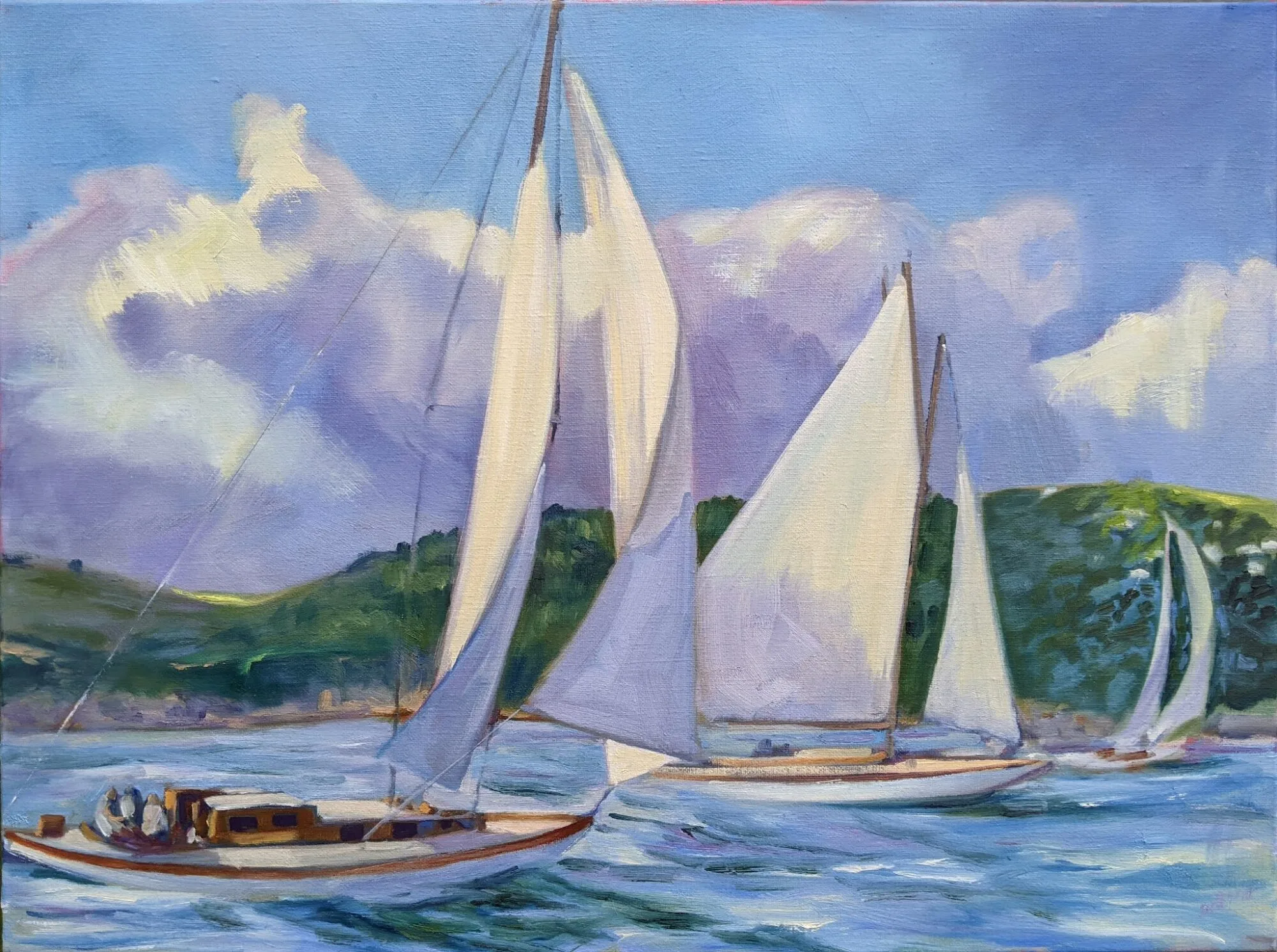
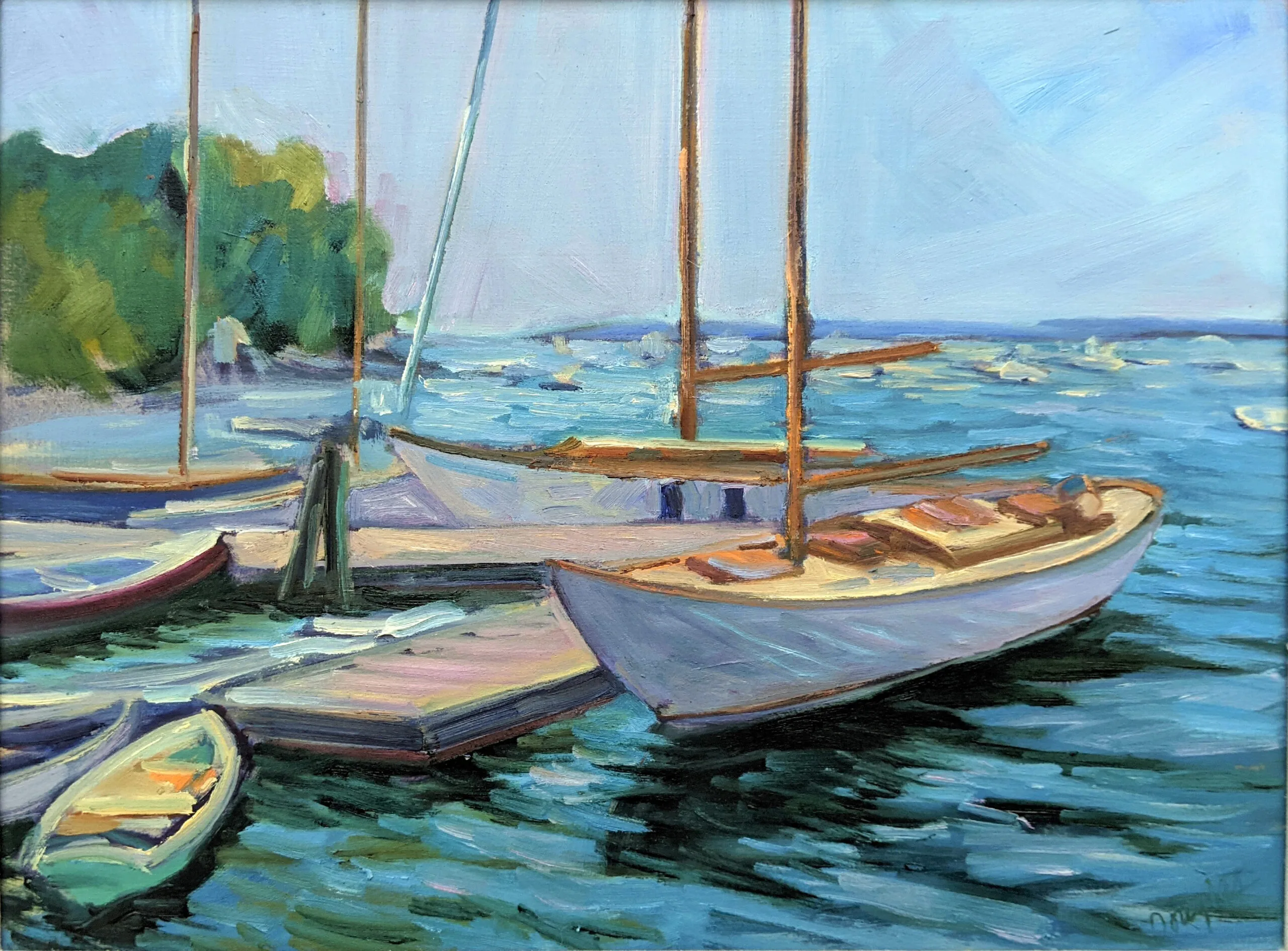
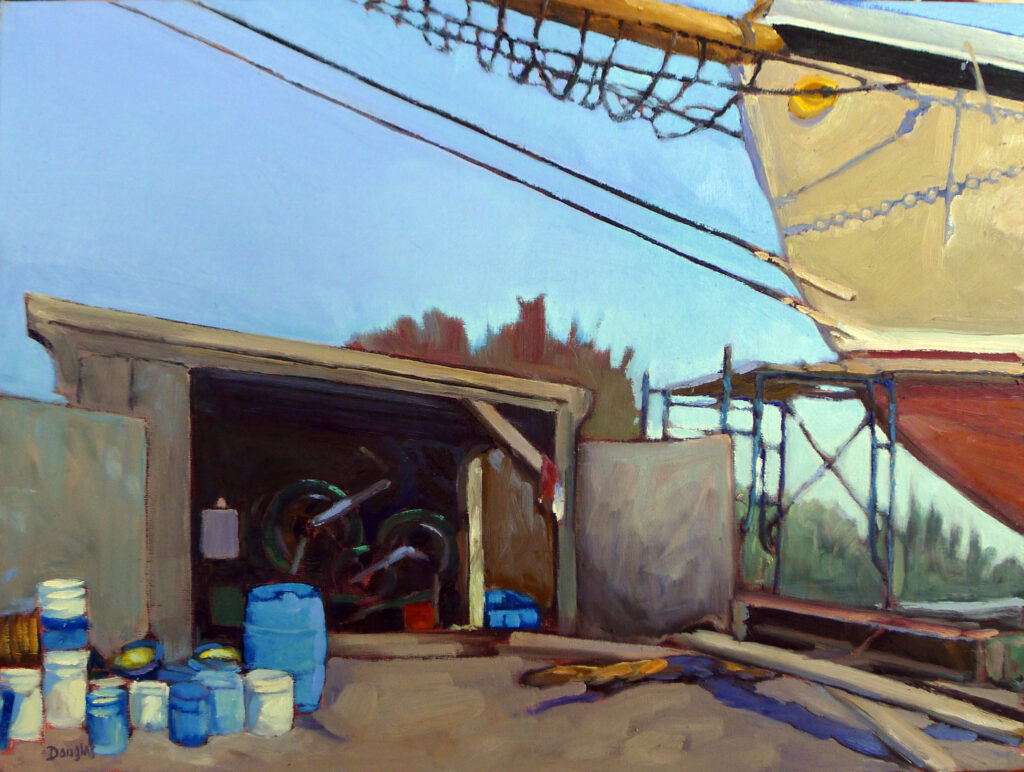
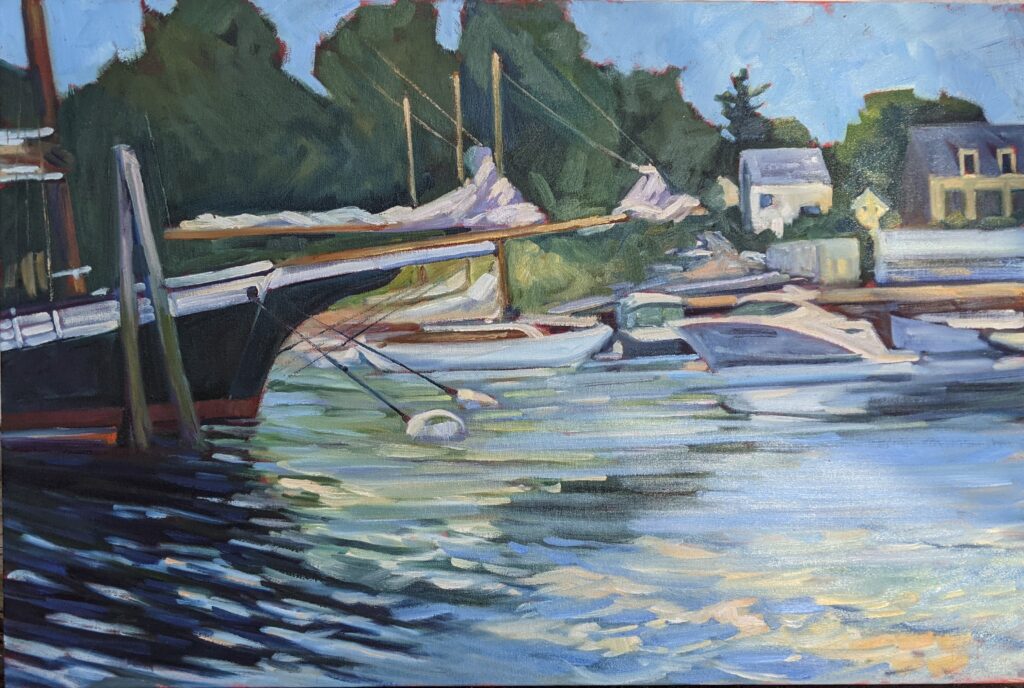
You’re voice is so immediate and refreshing, as always. The best example of thought leadership.
Great thoughts! I agree. Even while nursing I felt I was a creative, an artist. Letting my license lapse digging deep and committing myself to becoming more technically proficient has helped me feel a greater creative freedom. However, that alone does not an artist make. Those skills allow us to communicate our voice better . That inner voice /vision , to me is what really makes an artist successful and the technical expertise is helpful in conveying that to the viewer.
Read the book “Get the Picture” for an outsider’s inside view into the world of fine art (well, contemporary art, anyway) in New York. Fascinating and an eye opener into that clique-commodity-who’s who world and the cachet we give “artists” on the edge.
It is interesting that this morning Roger said “I don’t know why you do what you do.” And I felt compelled to explain that music and art are very related for me and in a way that is not mentioned in this blog. I have these observations and things I notice in the world and some latent ability to express and share them. I want to communicate ideas and feelings that I think have value and have people respond who “get” them. So if you write or perform a song or paint something it exists for an audience, whether that audience is a church congregation moved to sing with you or an art buyer or just a friend saying “hey I like that”. For that time, however brief, we have a human connection and that is the pay off. The skill, the apprenticeship, the honing of that idea, and the investment I make all lead to that moment.
I love this article. What I love even more is the selection of paintings you reference in it. You make great order from boat/warf chaos. I live on a lake but struggle to get a composition from that chaos. I do think the ocean has way better looking boats than the lake but I keep trying. Thanks